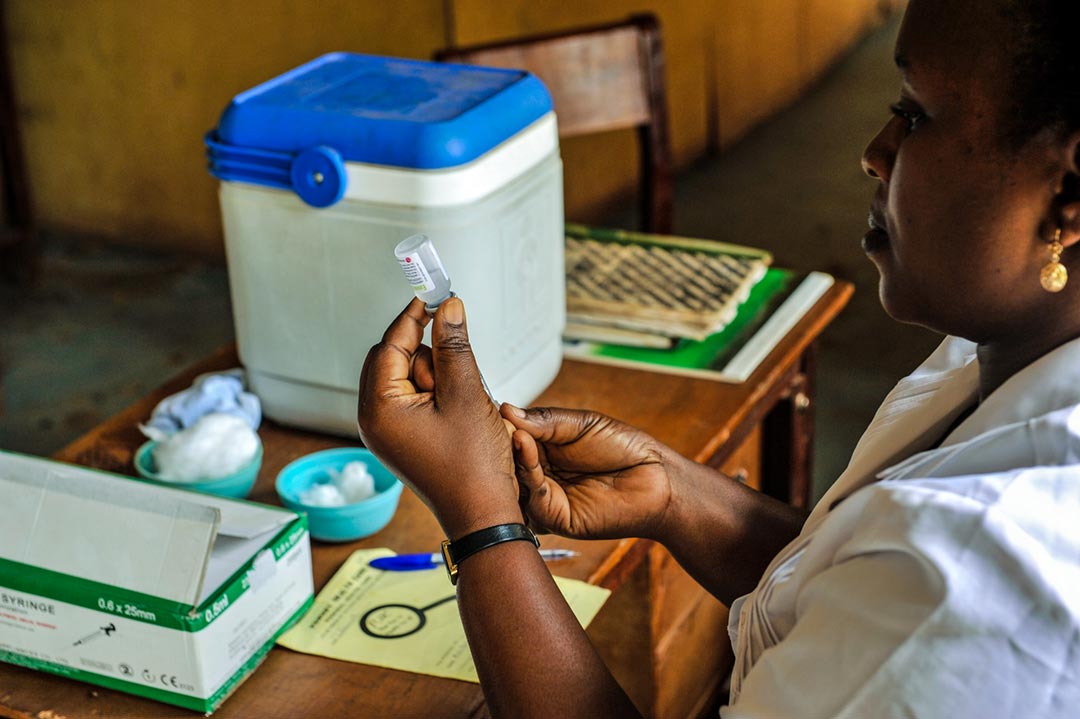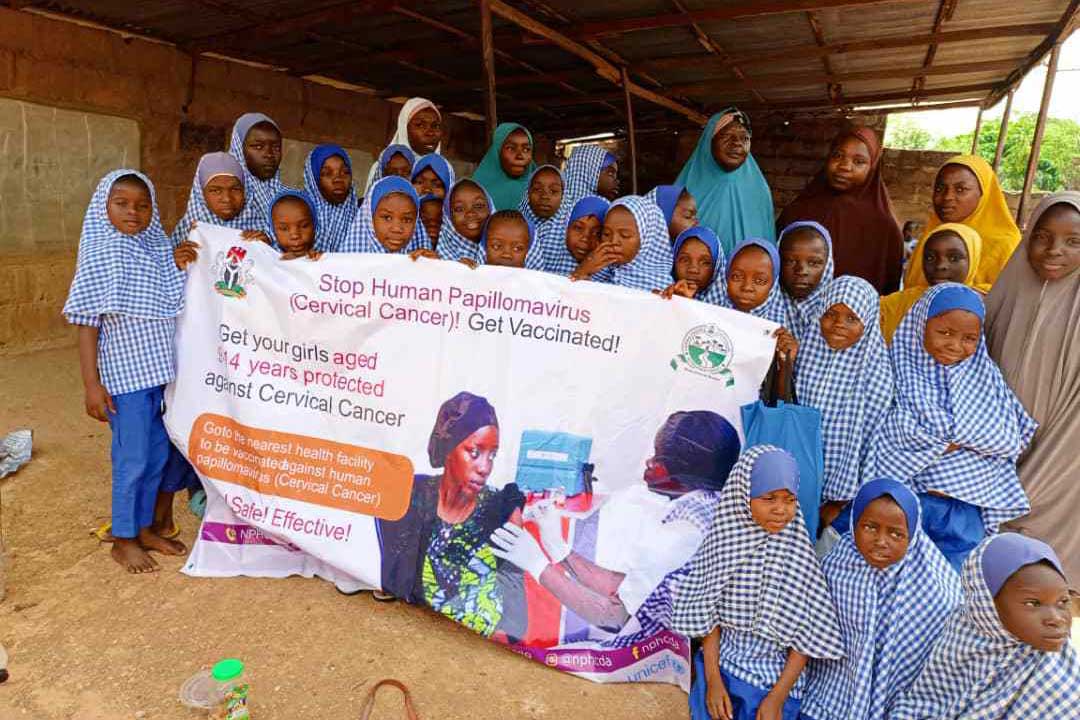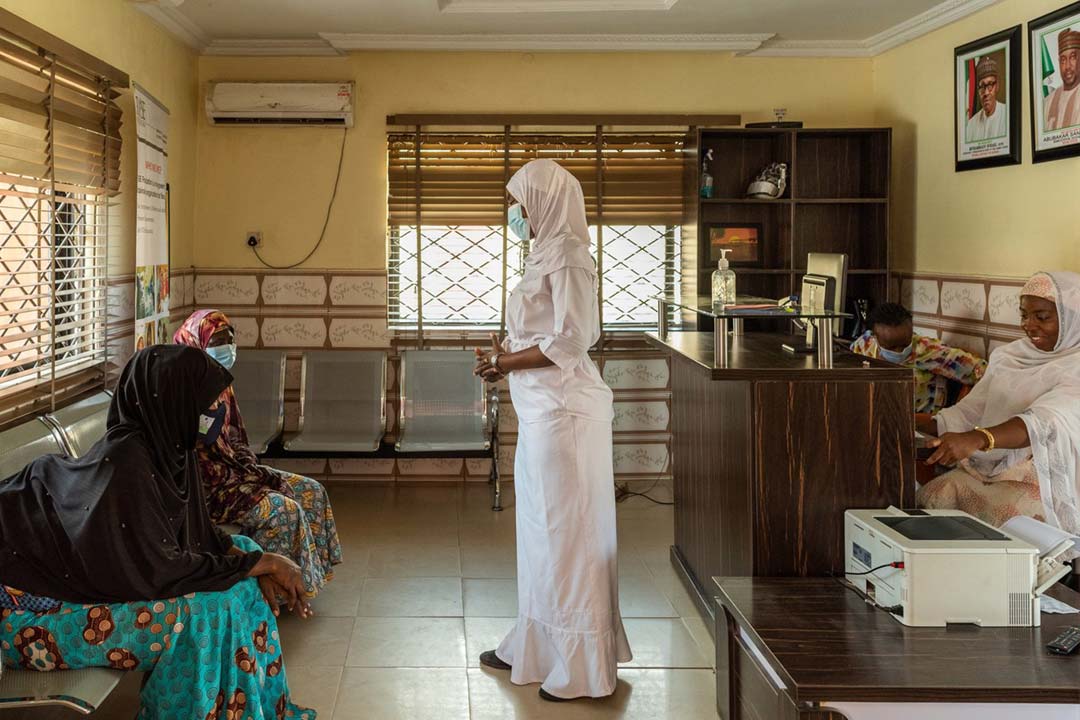United in crisis: Nigeria battles diphtheria
Kano state sits at the epicentre of an outbreak of the vaccine-preventable disease, which has so far killed 38 and hospitalised many more. Though the region has a reputation for vaccine hesitancy, families are stepping up to help the health system curb the epidemic.
- 8 February 2023
- 5 min read
- by Eric Dumo

Aliyu Buba was coiled up in his mother's arms as they walked out of the isolation ward on a Tuesday afternoon late in January. His eyes slowly flicked from side to side as the scorching sun battered his frail body. The three-year-old boy had endured a torrid week at the Murtala Mohammed Specialist Hospital, Kano, in North-West Nigeria, where he and dozens of other kids had been receiving treatment for diphtheria – a disease that has killed at least 38 people, most of them children across the country in recent weeks.
Diphtheria is caused by Corynebacterium diphtheria, bacteria which release a tissue-killing exotoxin, and spread via exhaled droplets. In its most dangerous form, the infection targets the respiratory system, causing a build-up of greyish dead tissue in the windpipe, leading to breathing difficulty. Serious cases can progress to heart damage, kidney and nervous-system involvement. Without good medical care, half of respiratory diphtheria patients are expected to die.
“The ongoing crisis is as a result of past errors that were not addressed. The way out is to improve immunisation coverage.”
Professor Oyewale Tomori
But it's vaccine-preventable. And the vaccine – usually packaged with tetanus and pertussis vaccine as part of the DTP jab, or as part of the five-in-one or six-in-one pentavalent or hexavalent basic childhood jabs – is probably the most easily-accessible in the world. As a result, diphtheria has become relatively rare, with just 8,638 cases reported worldwide in 2021, down from some 100,000 cases a year in the 1980s.
The current outbreak, confirmed by Nigerian health authorities on January 20, has wreaked havoc not only in Kano state, but also in Lagos, the country's commercial capital, where three deaths have been recorded from six confirmed cases so far. Suspected cases have also been reported in Osun and Yobe.
Kano is the epicentre of the outbreak, and here, 25 children mostly between the ages of five and 13 have succumbed to the disease. Three-year-old Buba, who lives with his parents and five other siblings in the state capital, Kano, is among more than 50 children to have survived the disease during this outbreak. Only able to communicate in the local Hausa dialect, Salamatu, Buba's mother, said her son could have died if they had delayed taking him to the Murtala Mohammed Specialist Hospital for treatment.
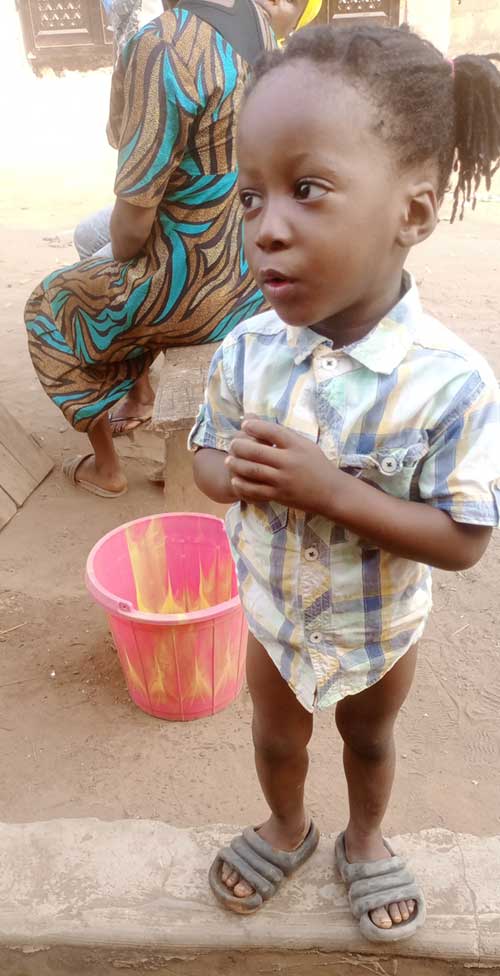
Credit: Eric Dumo
"He still experiences some pains from time to time, but his condition is better from what it was a few days ago," Salamatu began. "It started with coughing and later throat pain. It was a neighbour, who was listening to a radio programme, that advised us to take him to the hospital as the symptoms aligned with what was mentioned on the radio.
"By the time we got to the hospital, his condition had worsened. His breathing became fast and almost irregular. The prompt intervention of the doctors and nurses saved his life," the woman added.
While Buba has since returned to the relative comfort of his parents' home, more than 50 children continue their battle for survival in the hospital's isolation ward, where visitors are forbidden due to the contagious nature of the disease.

Credit: Eric Dumo
According to Dr Khalid Sanusi Kani, a physician at the state-owned health facility, they have managed to bring the outbreak in Kano under control through the combined efforts of all those in the health sector and cooperation of affected families.
"As of now, there are over 50 children undergoing treatment in Murtala Muhammad Specialist Hospital.
Have you read?
"Sometimes these kids die because of the hesitancy of the parents to take them to the hospital for vaccination.
"However, with the help of the state government, international organisations and cooperation of affected families, our doctors have brought the situation under control," he said.
Commissioner for Health in Kano, Dr Aminu Tsanyawa, who did not respond to several interview requests, told a press briefing on January 21, 2023, that they had established a rapid response team to check the spread of the outbreak in the state.
The strategy appears to be paying off in Kano as more affected families are bringing their children forward for treatment.
That's a hopeful sign in more than one way – a possible indicator of growing trust in the health system in a place where religious and cultural beliefs have been known to fuel vaccine hesitancy.
In Lagos, Disease Surveillance and Notification Officers have been stationed in various council areas to track and report any suspected case of the disease. The state also recently received about 100 vials of diphtheria antitoxin – a time-tested treatment – from the Nigeria Centre for Disease Control, to further help fight the outbreak in the city of more than 25 million people.
The NCDC has urged medical facilities across the country to increase awareness and detection levels while also publishing a public health advisory on its website.
While commending these efforts by the Nigerian health authorities to respond to the outbreak, renowned professor of virology Oyewale Tomori points to the root of the problem: "The outbreak is happening because we don't have enough children who are protected immunologically. If your vaccination programme is not comprehensive, over the years you will accumulate a large number of children not immunised and then this leads to an outbreak.
"If you check our vaccination coverage over the last 10 years, we have never really reached up to 60% as a country. This leads to an accumulation of millions of unvaccinated children.
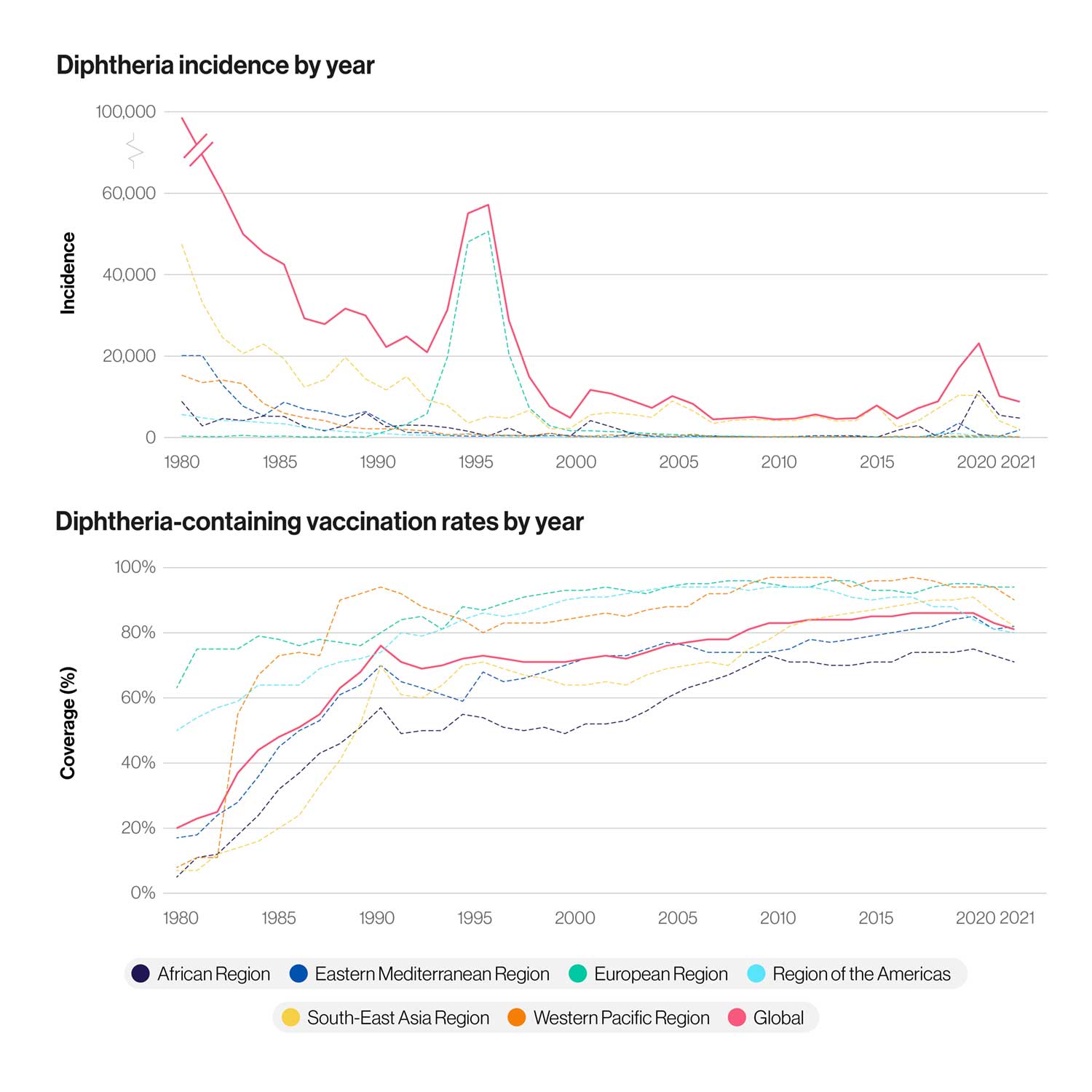
"The ongoing crisis is as a result of past errors that were not addressed. The way out is to improve immunisation coverage."
This diphtheria outbreak is not Nigeria's first. In 2011 for instance, 21 deaths were recorded from 98 cases in Borno, the North-Eastern part of the country. Since that period, few isolated cases have been reported. But with the ongoing efforts of all parts of the health sector to tackle the scourge, and with the cooperation of families in regions where vaccine hesitancy is the norm, it might not be long before preventable killers like diphtheria are booted out.
